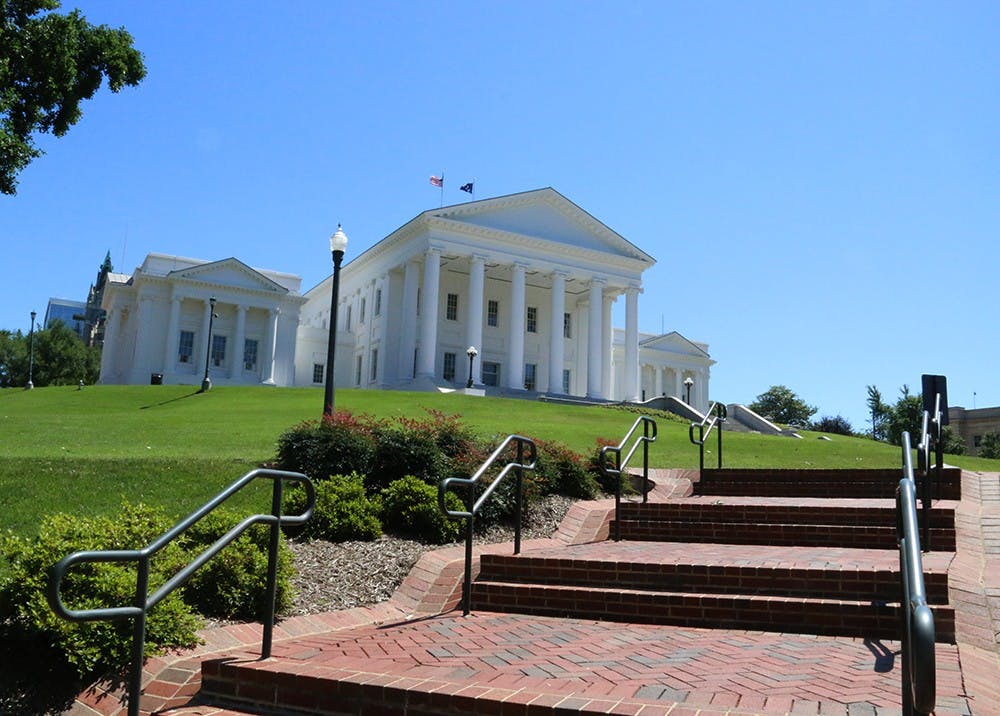Two proposed constitutional amendments will appear on the Virginia ballot Nov. 8 dealing with the right to work and tax exemptions.
One of the certified measures is the Virginia “Right to Work” Amendment that, if passed, would incorporate existing state law into the Virginia constitution.
The “Right to Work” law is a statute that bans employers from making union membership a condition of employment. Virginia is currently one of 26 states with right-to-work laws, and the law has been in the state code since 1947.
“Proponents [of the amendment] are concerned with Attorney General Mark Herring not enforcing the statute,” Law Prof. A.E. Dick Howard said, drawing parallels to Herring’s refusal to enforce an amendment of the state constitution prohibiting same-sex marriage in 2014.
Supporters of the amendment argue that passing the amendment would prevent future changes to Virginia’s status as a right-to-work state.
“The right to work — just like the right to life, liberty and the pursuit of happiness — is fundamental, and it deserves constitutional protection,” Rep. Richard P. “Dickie” Bell (R-Staunton), the sponsor of the bill, said, according to a February article in the Washington Post.
The Virginia constitution can be amended two ways, through a constitutional convention or through a legislatively referred constitutional amendment. Both proposed amendments originated in the General Assembly.
The legislatively referred constitutional amendment can be proposed in either house, and must be approved by a simple majority vote in one session of the state legislature. It is then referred to the next session that occurs after the next general election of the House of Delegates.
If the proposed amendment then passes both houses by a simple majority vote, it will be placed on the special or general election ballot. If it is then approved by a simple majority of voters, it becomes part of Virginia constitution.
The process takes a minimum of two years — a major concern for opponents of the amendment.
“It’s very difficult to undo constitutional amendments when circumstances change,” state Sen. Dave Marsden (D-Fairfax) said. “It’s very cumbersome to put what is already in law into the constitution.”
Marsden also expressed concerns with the contents of the amendment.
“It’s a very bad practice and what it’s designed to do is permanently make it more difficult for unions to operate in the interest of their members,” Marsden said.
State Sen. George Barker (D-Fairfax) said he believes there is no need to put the statute in the state constitution.
“The Virginia constitution is massive compared to the [U.S.] Constitution. It is huge, and part of the reason it’s huge is because we have a very easy process for amending the constitution,” Barker said.
Barker emphasized the unnecessary nature of many additions to the document.
“It’s already been amended dozens and dozens and dozens of times, a lot of which is done for simply political purposes than what is necessary to be in the constitution,” Barker said. “There is no need to put this in the constitution.”
Howard also expressed concern about amending the state constitution.
“One should not use the constitution to make social and economic stands,” Howard said.
The sponsors of the amendment — Bell and state Sen. Mark Obenshain (R-Harrisonburg) — did not return a request for comment for this article.
The second certified measure to amend the Virginia Constitution if passed, would allow tax exemptions for surviving widow or widower of any first responders killed in the line of duty.
The ballot question grants this tax exempt status to any “law-enforcement officer, firefighter, search and rescue personnel, or emergency medical services personnel who was killed in the line of duty from property taxes.”
This tax exemption would only apply to the surviving spouse so long as the property is their primary residence and they have not yet remarried.
“This provision seems uncontroversial,” Law Prof. Richard Schragger said in an email statement. “It is essentially a survivors’ benefit for police, firefighters, and other emergency personnel.”
The amendment was initially proposed by Del. Timothy Hugo (R-Centreville) and received unanimous bipartisan support through both General Assembly sessions the ballot question was voted on.







